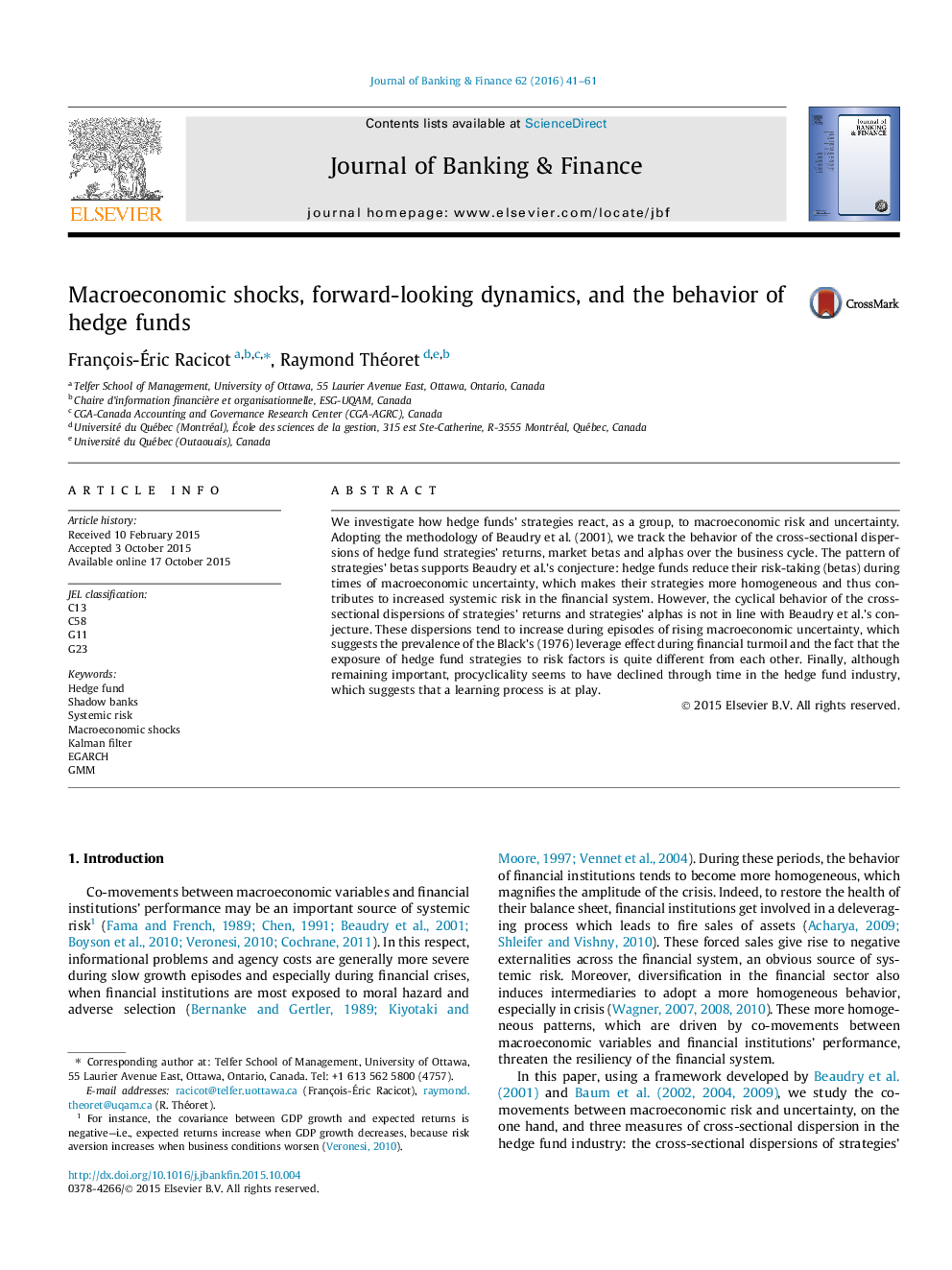| Article ID | Journal | Published Year | Pages | File Type |
|---|---|---|---|---|
| 5088465 | Journal of Banking & Finance | 2016 | 21 Pages |
â¢This article analyzes the impact of macroeconomic shocks on the risk-taking behavior of U.S. hedge funds.â¢We study the business cycle properties of the behavior of hedge fund strategies.â¢The behavior of hedge funds with respect to macroeconomic uncertainty is strongly asymmetric.â¢The cross-sectional dispersion of the strategies' betas decreases in periods of macroeconomic uncertainty.
We investigate how hedge funds' strategies react, as a group, to macroeconomic risk and uncertainty. Adopting the methodology of Beaudry et al. (2001), we track the behavior of the cross-sectional dispersions of hedge fund strategies' returns, market betas and alphas over the business cycle. The pattern of strategies' betas supports Beaudry et al.'s conjecture: hedge funds reduce their risk-taking (betas) during times of macroeconomic uncertainty, which makes their strategies more homogeneous and thus contributes to increased systemic risk in the financial system. However, the cyclical behavior of the cross-sectional dispersions of strategies' returns and strategies' alphas is not in line with Beaudry et al.'s conjecture. These dispersions tend to increase during episodes of rising macroeconomic uncertainty, which suggests the prevalence of the Black's (1976) leverage effect during financial turmoil and the fact that the exposure of hedge fund strategies to risk factors is quite different from each other. Finally, although remaining important, procyclicality seems to have declined through time in the hedge fund industry, which suggests that a learning process is at play.
